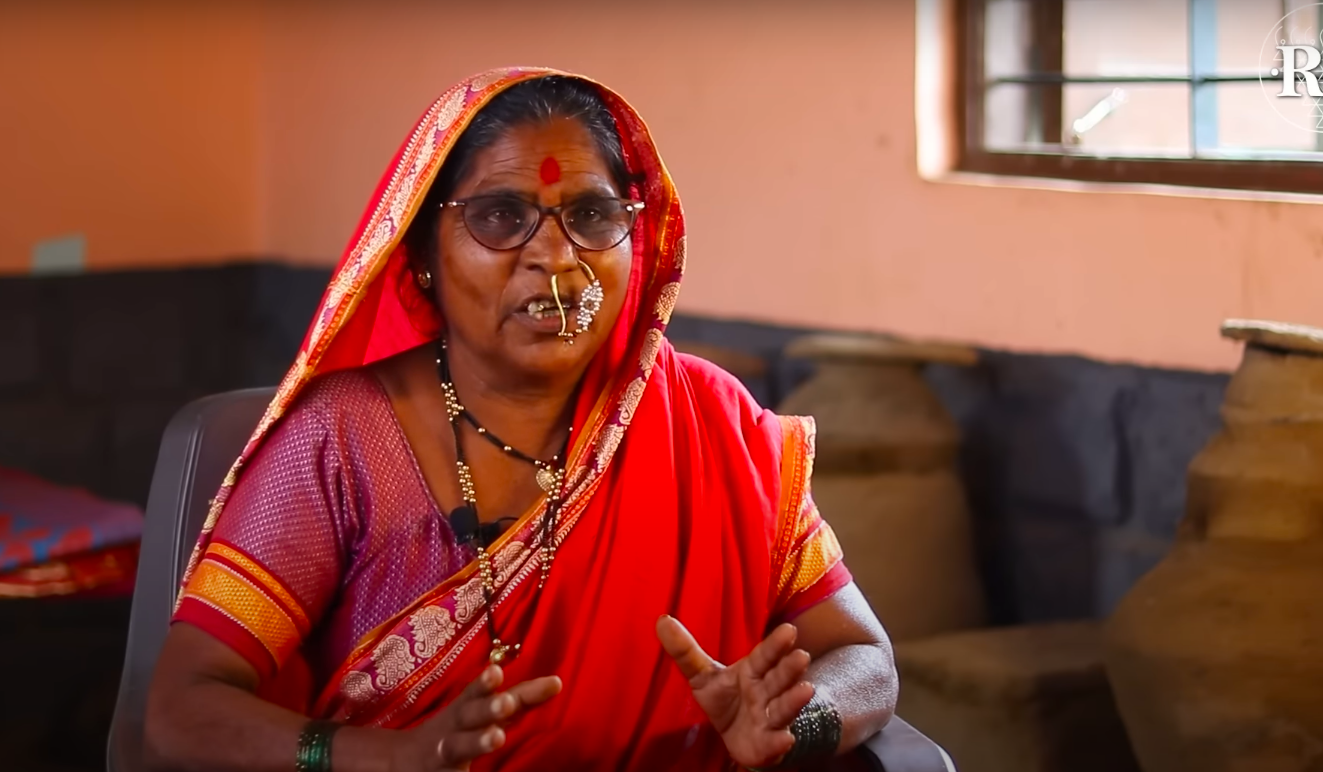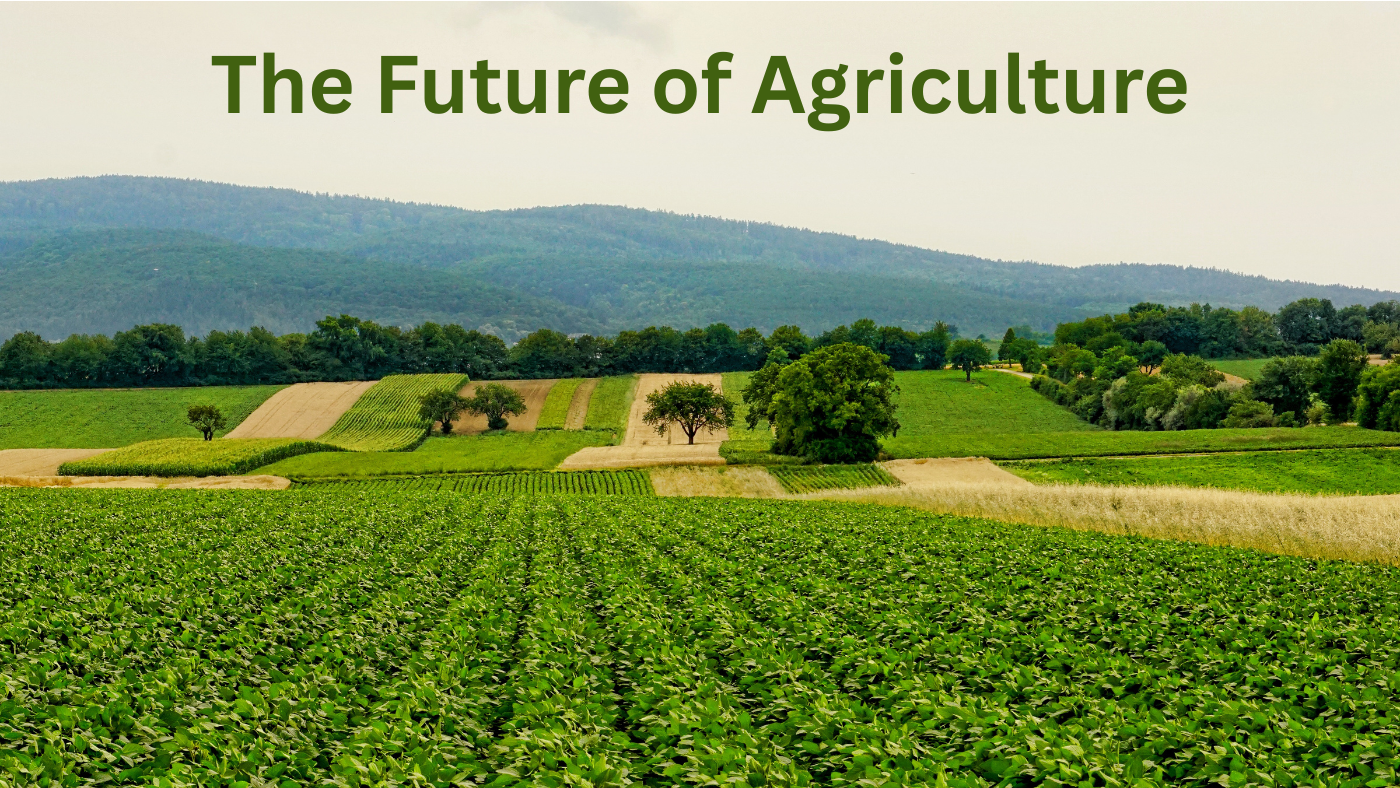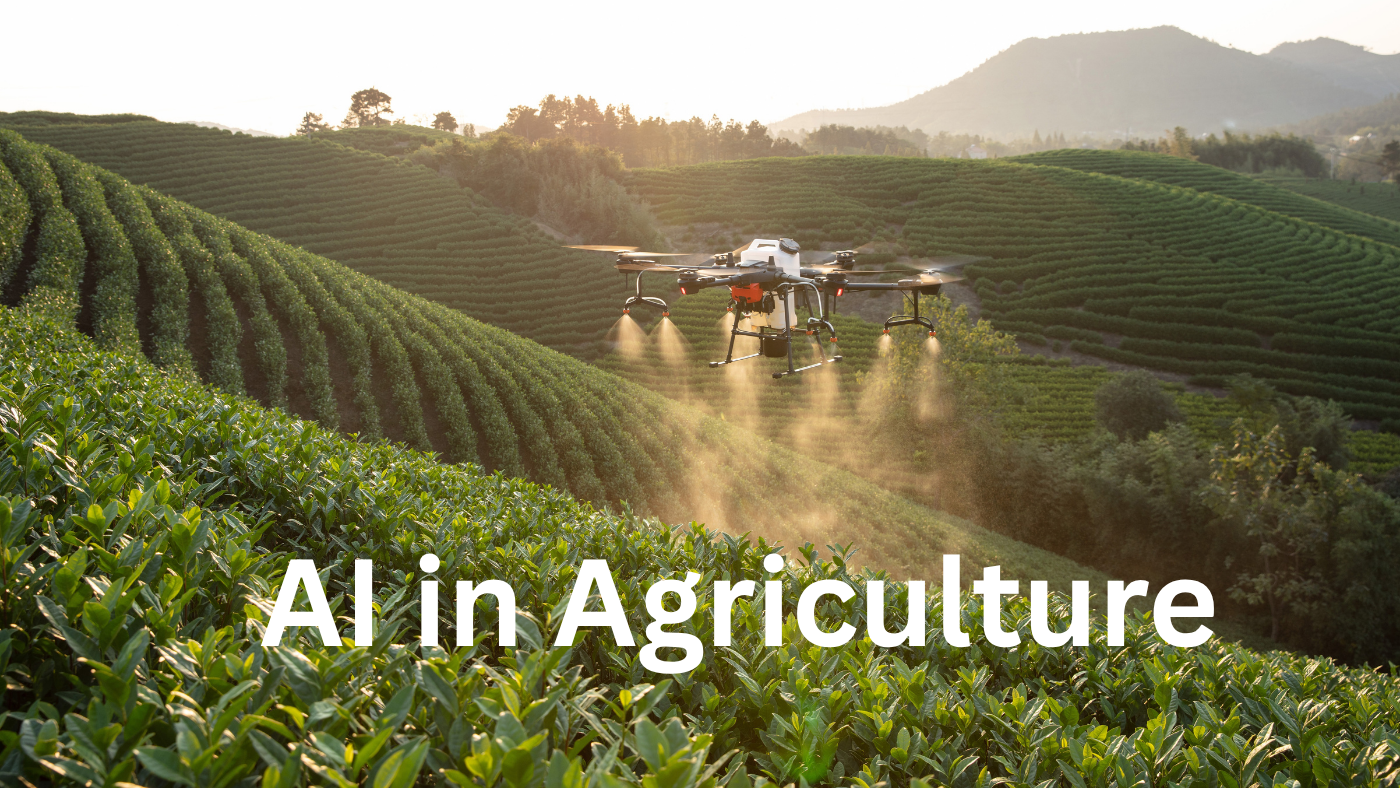In a small village tucked away in Maharashtra’s Ahmednagar district, a quiet revolution in farming is taking place. At the heart of it stands Rahibai Popere—fondly known as the “Seed Mother.” With no formal education, Rahibai has become an icon of sustainable agriculture and indigenous knowledge. Her grassroots movement is saving India’s native crop varieties from extinction. Starting with a handful of seeds and a deep belief in nature’s wisdom, she built a thriving community seed bank that now preserves over 150 traditional varieties of grains, vegetables, and pulses. But her mission goes beyond conservation. By training over 3,000 farmers—many of them women—Rahibai is ensuring food security, nutritional diversity, and economic independence for entire rural communities. Her journey is not just about farming; it’s about reclaiming sovereignty over what we grow, eat, and pass on to future generations.
Sowing the Seeds of Change
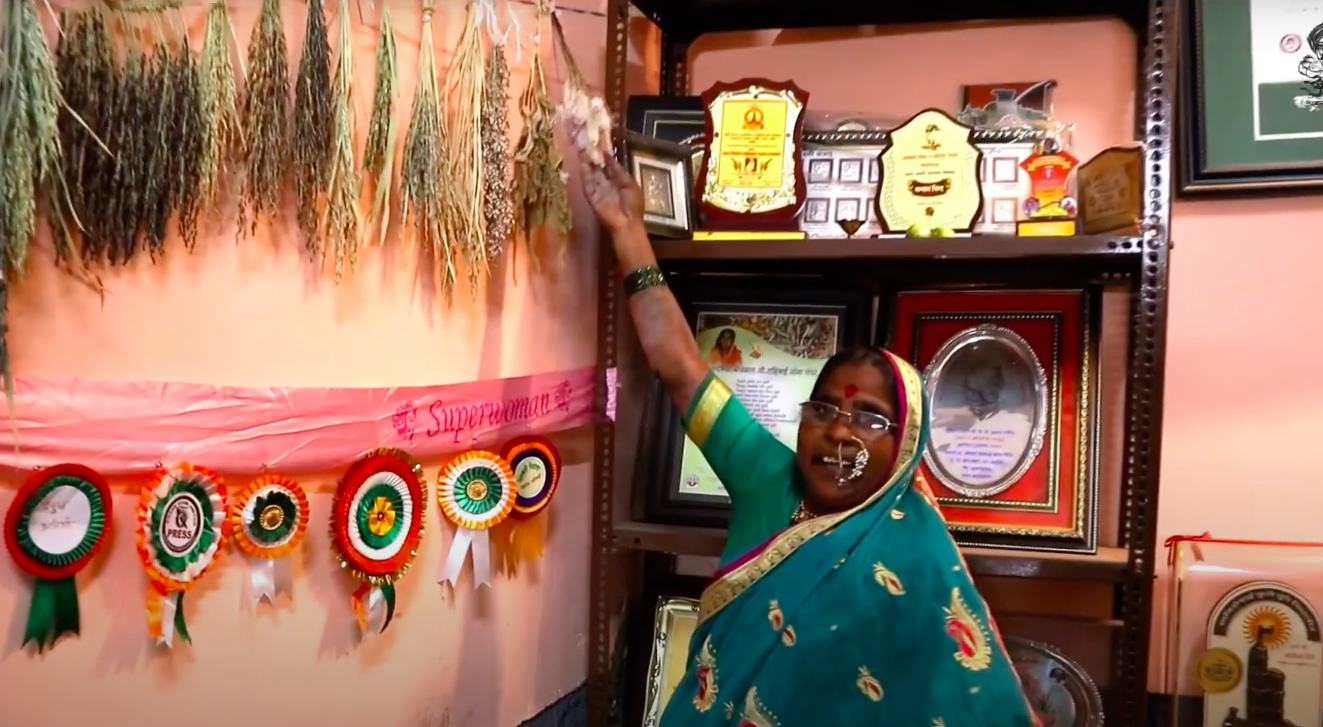
Rahibai holding native seeds in her hands
Rahibai’s journey began when she realized that hybrid seeds were making her community dependent and vulnerable. Crops were failing, input costs were rising, and the soil was deteriorating. She began collecting native seeds from elders and tribal farmers, understanding their unique growing patterns and nutritional value. With patience and persistence, she cultivated a seed bank that honored biodiversity and traditional wisdom. Rahibai didn't stop at her own farm—she traveled across nearby villages, encouraging farmers to return to their roots. Her seed bank became a hub for learning, sharing, and resilience. Today, Rahibai’s model is being studied by agri-scientists and adopted in agroecology programs across India.
Women, Wisdom, and the Land
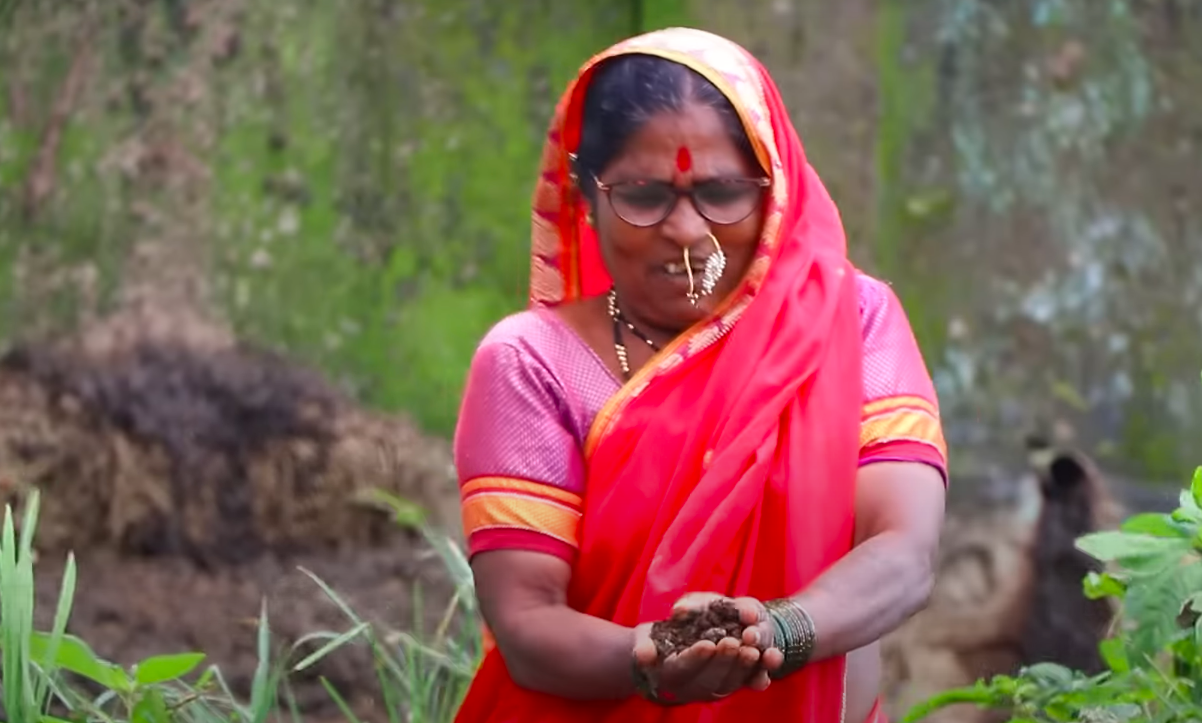
Rural women learning seed conservation techniques
Rahibai strongly believes women are the custodians of agricultural heritage. She leads workshops for rural women, teaching them how to identify, store, and propagate indigenous seeds. These sessions are not just educational—they're transformative. Many women who had never stepped outside their homes are now local leaders in sustainable farming. With Rahibai’s guidance, they’ve formed self-help groups, revived millet farming, and diversified their family diets. Her training also focuses on ecological practices like organic composting and natural pest control. Through her efforts, generations of rural women are reclaiming both knowledge and power over their farmlands.
The Science of Tradition
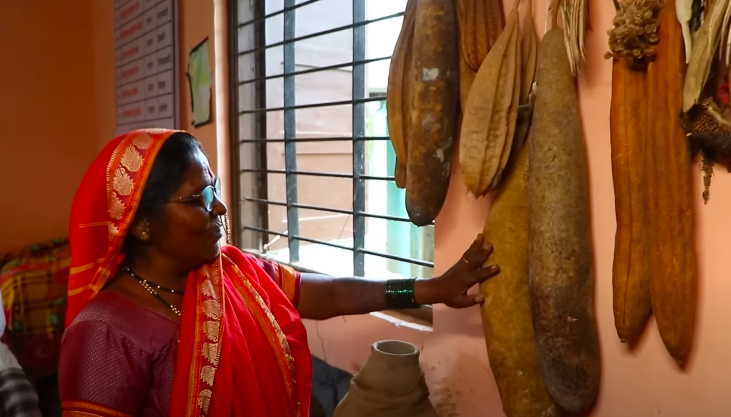
Agri-experts learning from Rahibai’s work
What sets Rahibai apart is her ability to blend age-old traditions with scientific validation. Her seed bank is meticulously documented—every variety is logged with its soil preference, water needs, growth cycle, and health benefits. Agricultural universities and NGOs now collaborate with her to promote agro-biodiversity and climate-resilient farming. She’s spoken at international forums and her grassroots model has been featured in academic journals. In 2021, she was awarded the Padma Shri for her invaluable contribution to Indian agriculture. Through it all, Rahibai remains rooted in simplicity, walking barefoot in her fields and trusting the language of the land.
A Legacy That Grows On
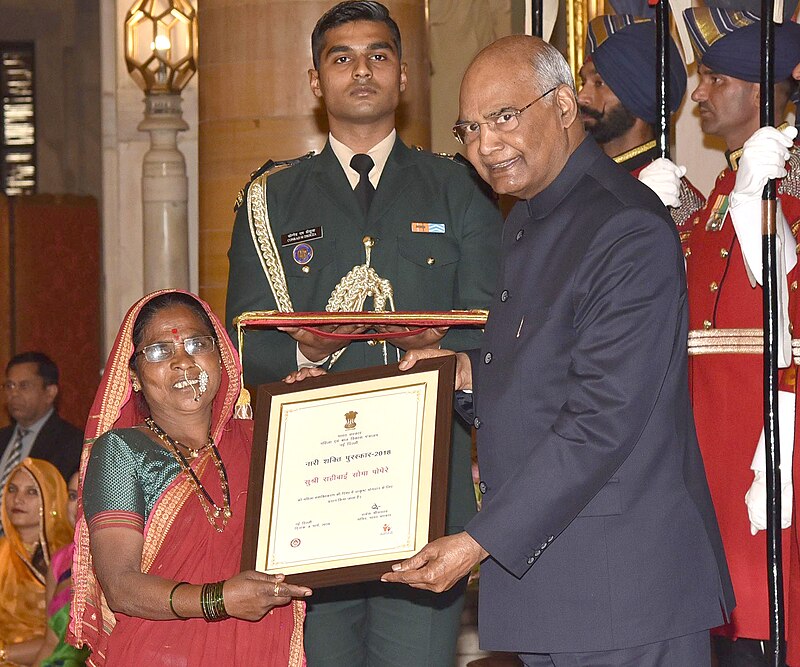
Rahibai mentoring the next generation of seed savers
Rahibai Popere’s impact stretches far beyond her village. Her work has inspired a network of community seed banks, revived over 200 traditional crop varieties, and influenced rural policy-making. But perhaps her biggest legacy is hope—that true change can come from the grassroots. By protecting native seeds, she is protecting a way of life that values diversity, sustainability, and self-reliance. As modern agriculture faces challenges like climate change and monoculture, Rahibai’s seed bank offers a living solution rooted in time-tested wisdom. Her dream? That every farmer in India becomes a seed guardian.
From One Seed, a Thousand Stories
Rahibai Popere proves that revolutions don’t need degrees—they need dedication. Her seed bank is not just preserving biodiversity, it’s sowing strength, sustainability, and sisterhood across India’s farmlands. She is a living reminder that the answers to our biggest agricultural problems may already lie buried in the soil—waiting for a woman like Rahibai to bring them back to life.
